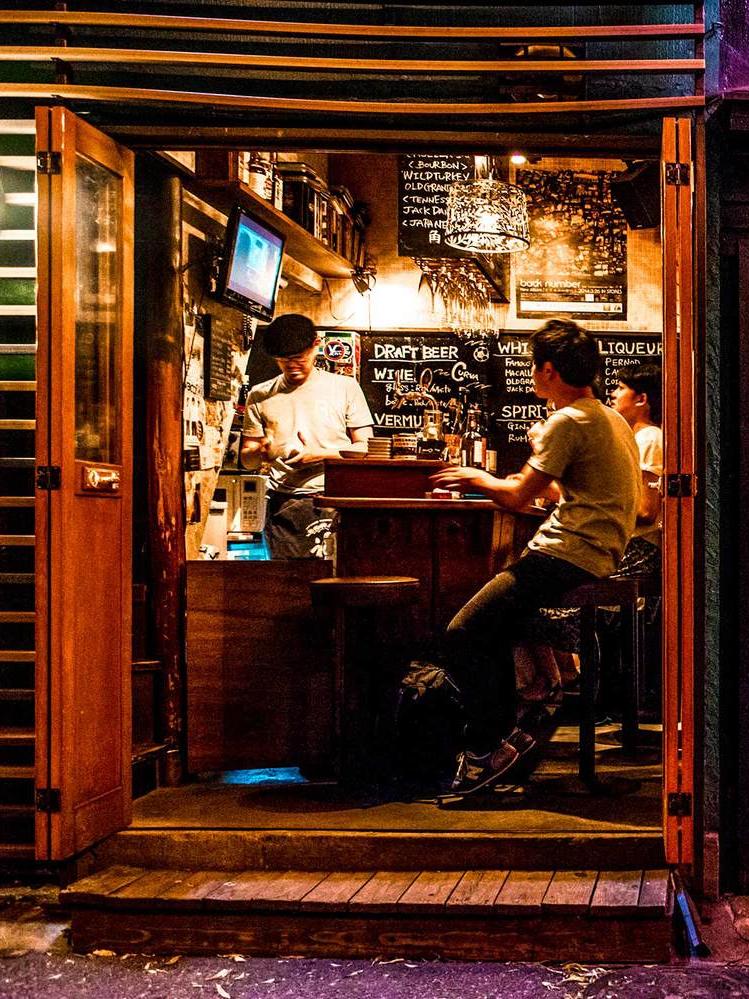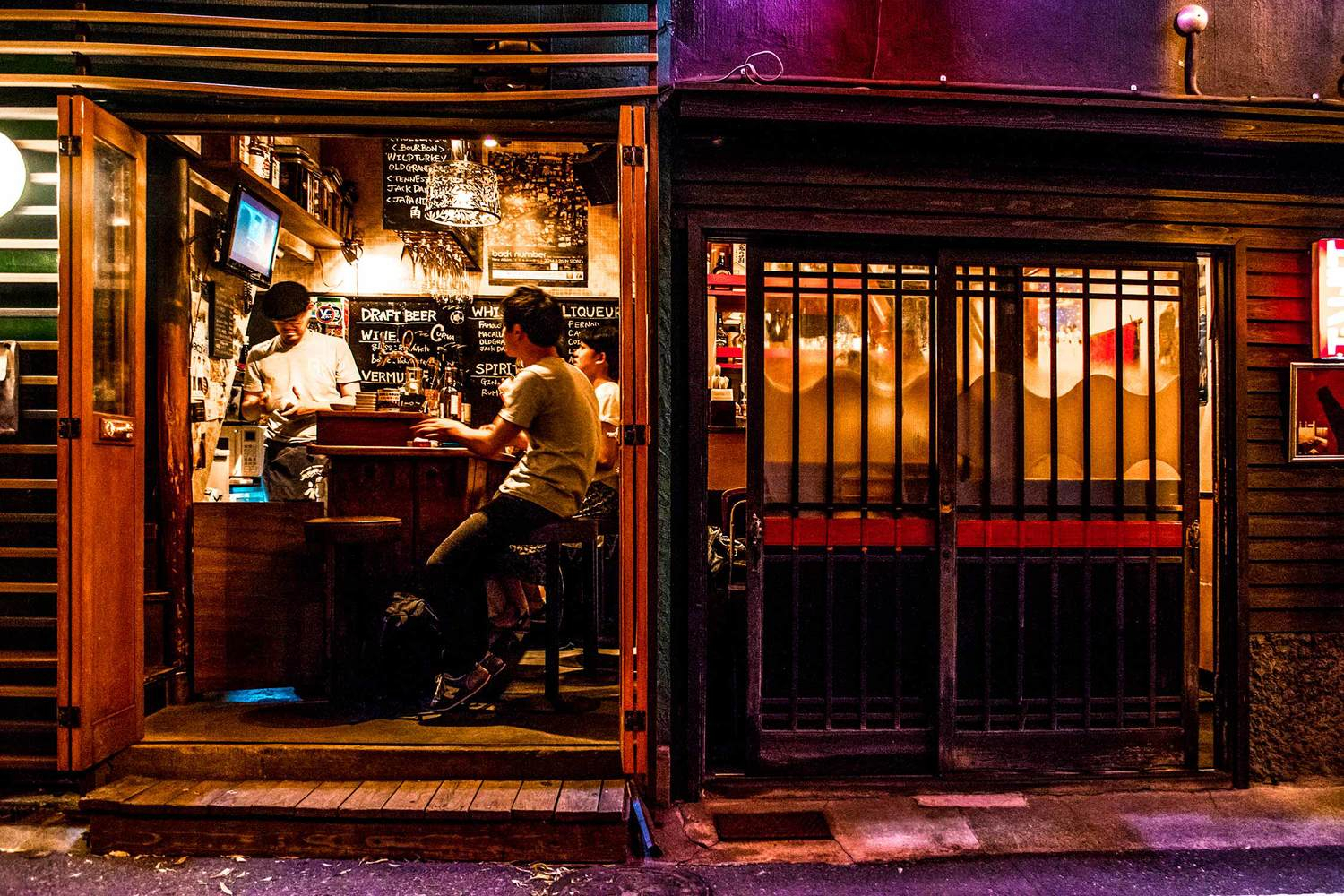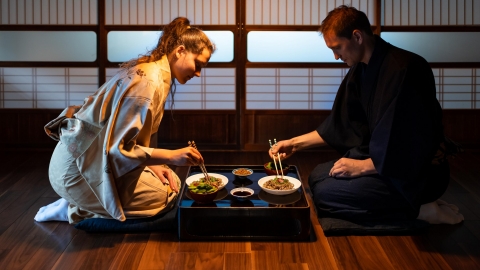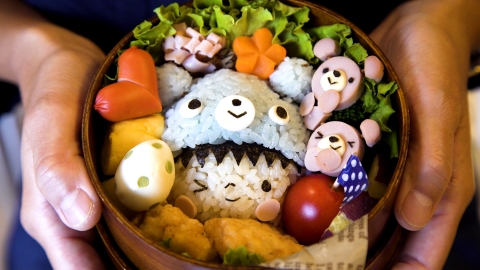The "beer rescue" mission
2020 was supposed to be a momentous year for Japan. With the Olympic Games being held in Tokyo, the Land of the Rising Sun had anticipated welcoming around 40 million visitors. However, due to the impact of the Covid-19 pandemic, the Games were postponed until a year later. Inevitably, the country's economy was severely affected.
According to Bloomberg, the significant drop in the number of bars and restaurants operating has caused beer sales in Japan to fall by 26% in the first half of 2020. Isamu Yoneda, Head of Distillation at Kiuchi Brewery, a craft beverage producer, said this is a major problem for smaller breweries. Due to sparse customer numbers and canceled export orders, Kiuchi Brewery is left with only a pile of unsold beer.
The company had to find a solution – and they decided to turn the unsold beer into another alcoholic beverage.
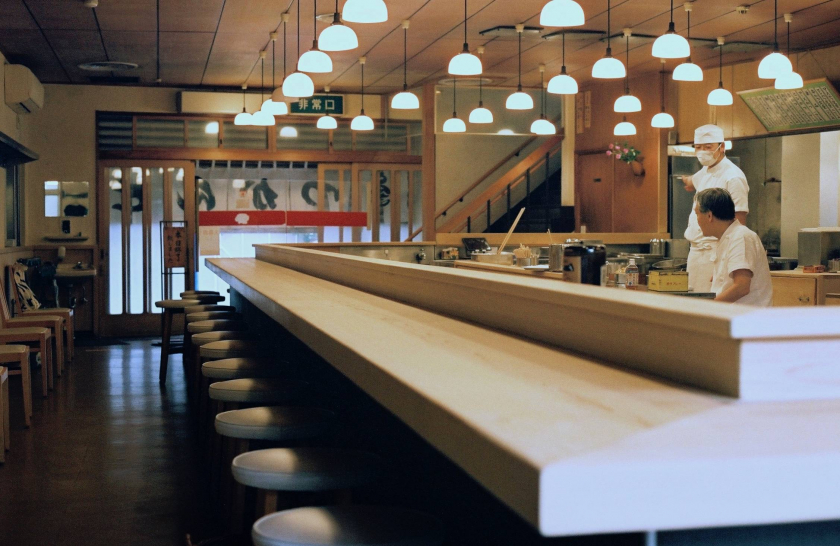
The Tonkatsu Tonki restaurant and bar was deserted during the pandemic (Photo: Dan Buyanovsky)
In April 2020, Kiuchi Brewery launched the Save Beer Spirits campaign at its Tokyo distillery, giving local bars and breweries a chance to turn their unsold beer into gin. This also meant:Transform a beverage with a shelf life of only 4 to 6 months into a beverage with no expiration date.
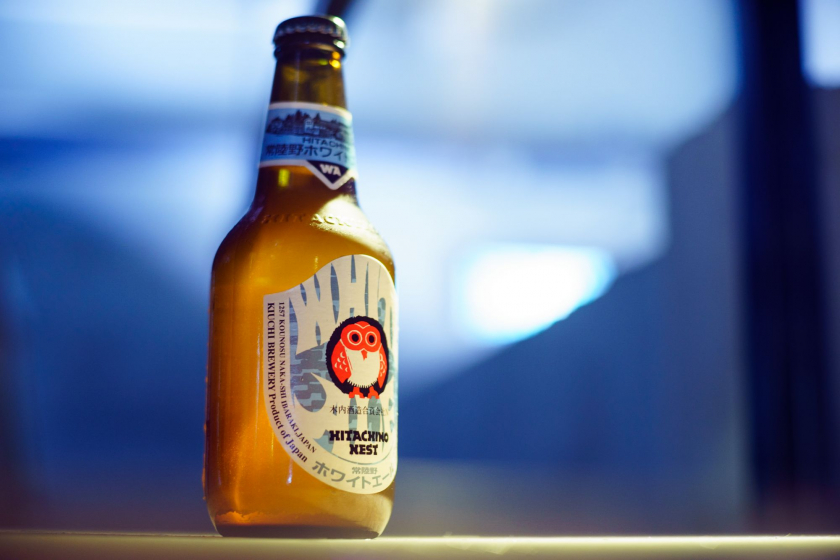
A bottle of craft beer from Kiuchi Brewery (Photo: Internet)
from craft beer to gin
In 1994, Japan loosened its strict regulations on small-scale beer production, leading to a boom in the craft beer industry. Although overall beer sales nationwide have remained stagnant over the past decade, by 2016 the market share of the craft beer industry had tripled from 0.5% in 2007.
Kiuchi Brewery was founded in 1823, initially as a sake brewery. After beer regulations were amended, the company became one of many beverage manufacturers to enter the craft beer market, and has been producing its exclusive Hitachino Nest beer brand for 25 years.
According to Yoneda, the method of turning beer into spirits is not a new invention. The Kiuchi brewery has been using beer to make plum wine for many years, and has also experimented with making gin.
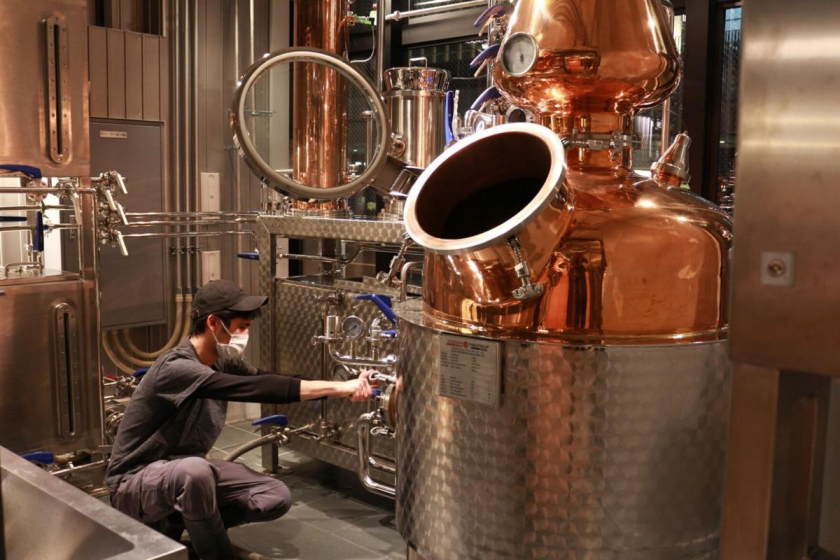
Employees at the Kuichi Brewery distillery (Photo: Sadamu Saito)
Most gins are made from grains such as barley, rye, or wheat, which are crushed, soaked until fermented, and then distilled into a high-alcohol, "neutral" spirit. This is then distilled a second time with juniper berries and other botanicals to enhance the flavor. In some cases, beer is used to replace the initial processing of the neutral spirit, skipping the grain crushing and fermentation and going straight to the final distillation stage.
"Kiuchi Brewery has asked bars to send a minimum of 20 liters of beer to the brewery, which will be returned as gin," Yoneda shared.
On average, 8 liters of gin are produced for every 100 liters of beer. This gin is then shipped in the commonly seen 750ml bottles, or as sparkling gin cocktails in cans or crates for customers who wish to drink directly from the tap.
Yoneda explained that using beer to make gin results in a bitter taste, but in addition to juniper berries, Kiuchi Brewery also uses Japanese peppercorns, lemons, and oranges to "balance the bitterness" with "citrus flavors."
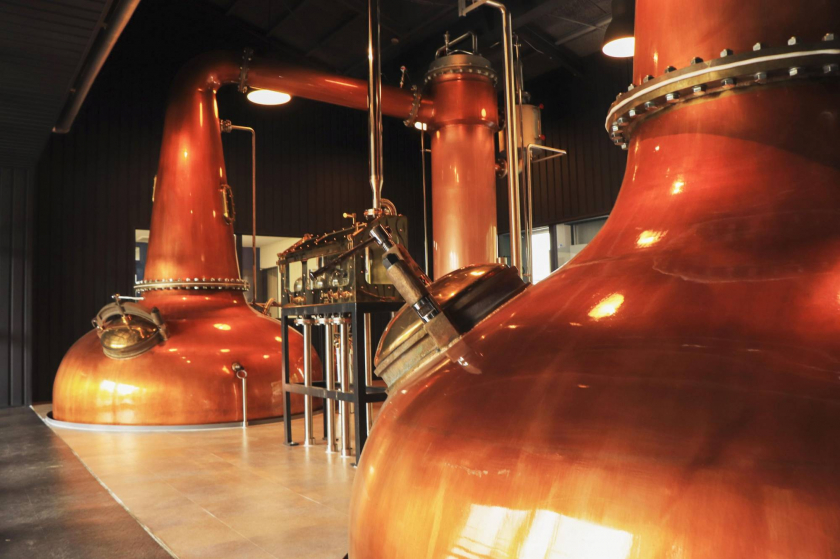
Large stills are used to distill craft beer into gin at the Kiuchi Brewery distillery in Ishioka, Ibaraki Prefecture, Japan (Photo: Sadamu Saito)
For a Sustainable Market
In the Beer Rescue campaign, bars only need to pay for delivery, and the Kiuchi brewery will distill the beer for free. "In these difficult times, we have a responsibility to provide service to everyone. Most importantly, we want to keep breweries and bars afloat," said Yoneda.
Kiuchi Brewery isn't the only producer using beer to make gin. The Ethical Spirits & Co., established in February 2020, aims to help sake breweries transform their surplus sake into other spirits. Chikara Ono, co-founder of the company, said that when the pandemic hit and beer sales plummeted, The Ethical Spirits & Co. began exploring new recipes for producing gin from beer.
In May 2022, the company received a donation of 20,000 liters of near-expired Budweiser beer from the giant AB InBev – which was also experiencing a large surplus of beverages due to sharply declining beer sales. From that donated beer, Ono's company was able to produce 4,500 bottles of gin.
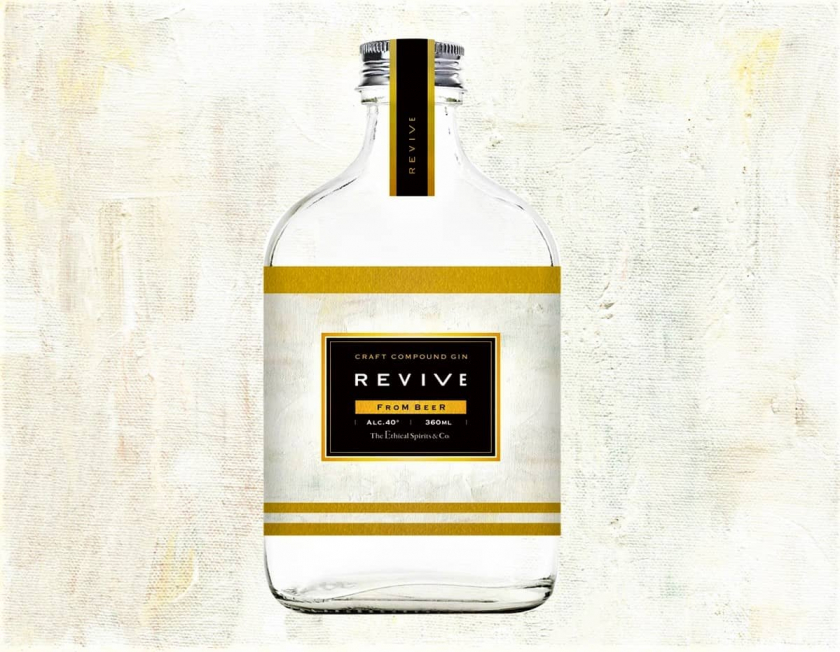
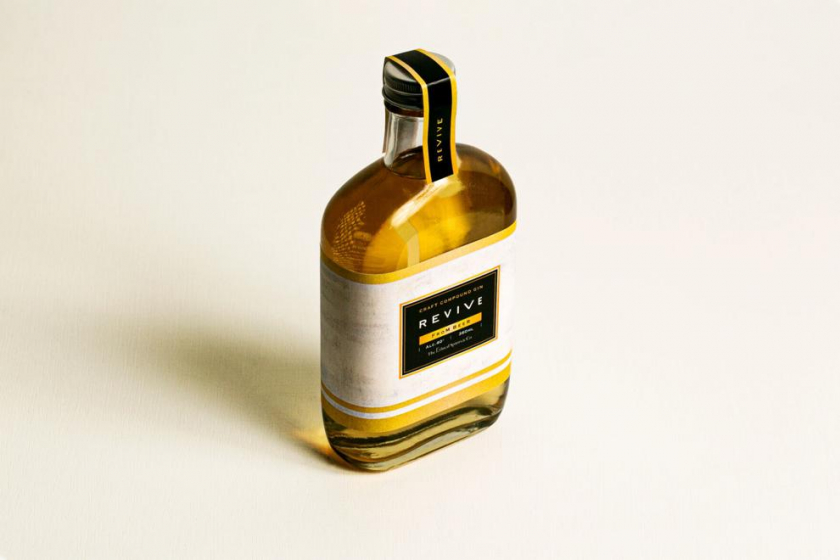
Revive gin is made with Budweiser beer and has flavors of lime zest, oak, cinnamon, and san'ontō (a dark, sweet sugar syrup) - Photo: The Ethical Spirits & Co.
Takahiro Shimada, Head of Marketing at AB InBev Japan, said: "At the time, we were dealing with excess inventory, while Ethical Spirits had the right knowledge and motivation to create a new product that we thought would have a positive impact. This also provided support for local businesses."
In mid-2020, The Ethical Spirits & Co. was still constructing its distillery in Tokyo. In December, the plant officially opened and partnered with sake producer Gekkeikan to distill Budweiser beer. Since then, a series of innovations and new recipes for producing gin from beer have emerged, quickly becoming a burgeoning market in Japan.
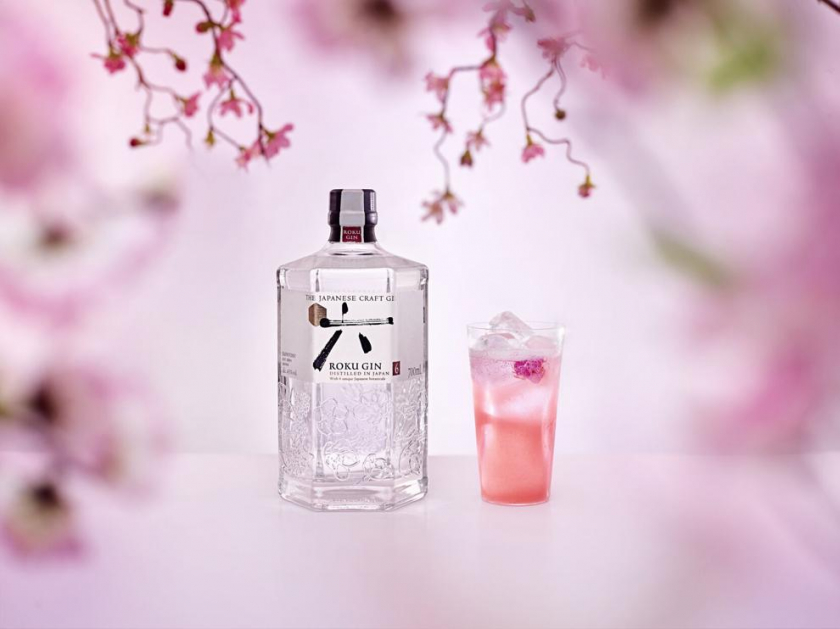
Beam Suntory acquired British craft gin producer Sipsmith in 2016 and launched Roku, Japan's first craft gin, in 2017. (Photo: Beam Suntory)
Although Japan's first dedicated gin distillery only opened five years ago in Kyoto by Beam Suntory, the gin market is estimated to be worth $209 million and is projected to grow by 4.4% annually over the next three years. Major beverage companies, including renowned Japanese whisky producers Suntory and Nikka, have helped bring handcrafted Japanese gin to the international market.
According to Ono, the current drinking trend in Japan is gin soda and canned cocktails, which creates opportunities for brewers to sustainably reuse surplus beverages. "If we can use leftover or unsold materials to create something special and more upscale, that's fantastic. It aligns perfectly with our efforts toward a stable and sustainable economy," he said.

 VI
VI EN
EN



